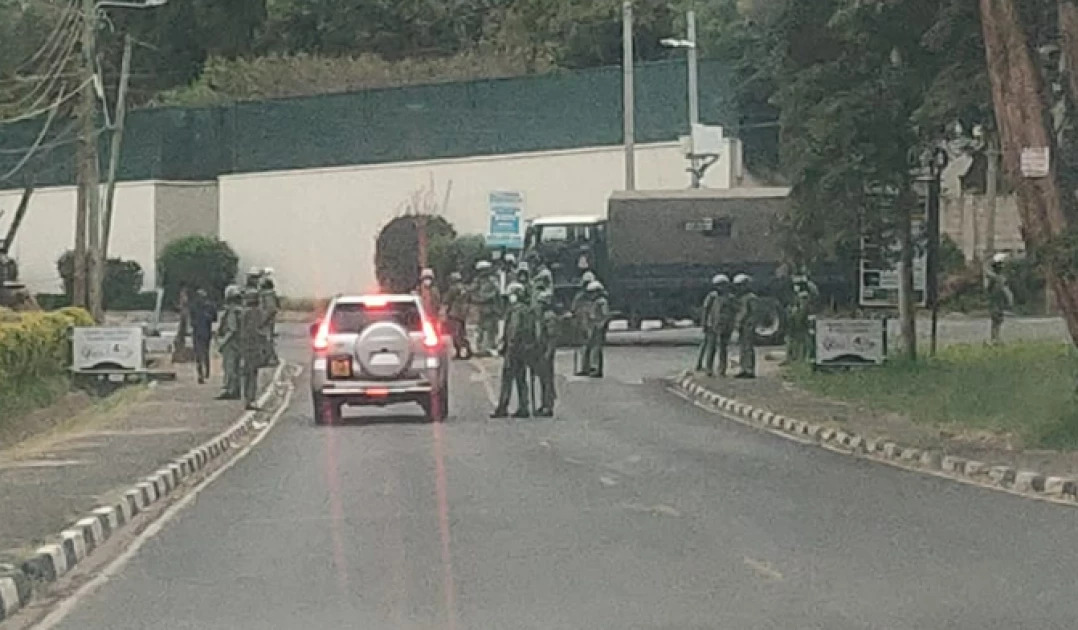The situation unfolding in Nairobi around the State House underscores a complex and dynamic tension between governmental actions, public sentiment, and the response from law enforcement. Here’s a breakdown of the recent events, their implications, and the broader context.
Summary of Events
- Protests Against the Finance Bill 2024:
- Protests erupted against the Finance Bill 2024, which proposed new taxes.
- The outcry was significant enough to influence President William Ruto to reject the bill.
- Presidential Response:
- President Ruto invoked Article 115(1)(b) of the Constitution, refusing to assent to the bill.
- He recommended that the National Assembly reconsider and remove all the contentious clauses from the bill.
- Police and Military Deployment:
- Anti-riot police and military forces were deployed around State House and adjacent roads.
- Key roads such as Dennis Pritt Road, State House Avenue, Processional Way, Valley Road, and Jakaya Kikwete Road were blocked.
- Casualties and Governmental Actions:
- At least 15 people lost their lives during the protests.
- The government deployed the military to support police operations, highlighting the gravity of the situation.
The Finance Bill 2024 Controversy
The Finance Bill 2024 was met with widespread criticism due to its proposed new taxes, which many Kenyans viewed as burdensome. The bill’s rejection by President Ruto reflects a significant moment where public pressure influenced legislative decisions.
Key Concerns of the Bill
- Economic Impact: Many critics argued that the proposed taxes would increase the cost of living for ordinary Kenyans, especially in the context of an already challenging economic environment.
- Public Discontent: The protests and widespread opposition indicated that many felt the bill was out of touch with the economic realities faced by the populace.
Governmental Response and Implications
Presidential Action
President Ruto’s decision to decline the bill signifies a responsiveness to public outcry and a strategic move to address rising tensions. His approach to seeking amendments or complete removal of contentious clauses suggests a pivot towards more balanced fiscal policies.
Law Enforcement and Public Order
The deployment of anti-riot police and military personnel around State House and major roads demonstrates the government’s concern over potential escalations. The blocking of roads indicates a preventive measure to maintain security and prevent protesters from reaching critical government locations.
The Broader Context
Political Dynamics
- Parliamentary Influence: The bill’s fate now lies with the National Assembly, which can either amend it or push it through with a two-thirds majority. This creates a pivotal moment in Kenya’s legislative process.
- Public Trust: The handling of the protests and the subsequent response by President Ruto will likely impact public trust in the government and its institutions.
Social Impact
- Casualties: The death of 15 people during the protests underscores the serious nature of the unrest and the urgent need for dialogue and reconciliation.
- Public Sentiment: The protests reflect deeper frustrations within the populace about economic challenges and governance.
Moving Forward
The rejection of the Finance Bill 2024 by President Ruto is a significant development in Kenya’s political landscape. The focus now shifts to how the National Assembly will respond and whether the government can effectively address the underlying economic concerns that sparked the protests.
Key Considerations
- Legislative Actions: The National Assembly’s next steps will be crucial in determining the bill’s future and whether it will align more closely with public sentiment.
- Public Engagement: Continued dialogue with the public and transparent communication will be essential in restoring calm and building consensus.
- Security and Human Rights: Balancing security measures with respect for human rights remains a critical challenge for the government as it navigates the aftermath of the protests.
Conclusion
The events around the Finance Bill 2024 reflect a pivotal moment in Kenya’s governance and its relationship with the public. President Ruto’s refusal to sign the bill is a testament to the power of public opinion and the importance of responsive governance. As the situation evolves, the focus will be on finding a path forward that addresses economic concerns while maintaining social harmony and respecting democratic processes.
This unfolding narrative will be crucial to watch, not just for its immediate impact but for what it signals about the future of Kenyan democracy and governance.
